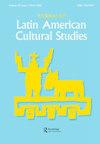The Political Violence of the 1970s in Recent Argentine Cinema: Strategies for the Reaffectivisation of the Past in Rojo (Benjamín Naishtat, 2018)
IF 0.3
4区 社会学
Q4 CULTURAL STUDIES
引用次数: 0
Abstract
There is a renewed momentum in twenty-first-century Argentine film to represent the 1970s in productions that, in one way or another, exhume the alliance between auteur and commercial cinemas, developed during the restoration of democracy in 1983, in order to think “differently” about the ‘70s or to recover the ‘70s of “the common people”. This essay sets out to examine the particular way political violence is expressed in the film Rojo [Red] through mise-en-scène choices associated with the aesthetics of certain popular cinemas of the 1970s and with the central role of romantic ballads during the period depicted. Attention to the use of romantic song allows us to understand the way the work constructs specific affective and cognitive appeals between the figurative diegetic universe and the spectators’ cultural memory, and to suggest that it is precisely in the territory of the family that a type of violence is engendered that would later be replicated in other social structures.20世纪70年代阿根廷电影中的政治暴力:罗霍对过去的重新影响策略(Benjamín Naishtat,2018)
在21世纪的阿根廷电影中,有一种新的势头,在制作中代表了20世纪70年代,以某种方式挖掘了1983年恢复民主期间发展起来的导演和商业影院之间的联盟,以便对70年代进行“不同”的思考,或恢复“普通人”的70年代。本文试图通过与20世纪70年代某些流行电影院的美学以及所描绘时期浪漫民谣的中心作用相关的选择,来审视电影《Rojo[Red]》中政治暴力的特殊表达方式。对浪漫歌曲使用的关注使我们能够理解作品在具象的死亡世界和观众的文化记忆之间构建特定情感和认知诉求的方式,并表明正是在家庭的领域中产生了一种暴力,这种暴力后来会在其他社会结构中复制。
本文章由计算机程序翻译,如有差异,请以英文原文为准。
求助全文
约1分钟内获得全文
求助全文

 求助内容:
求助内容: 应助结果提醒方式:
应助结果提醒方式:


